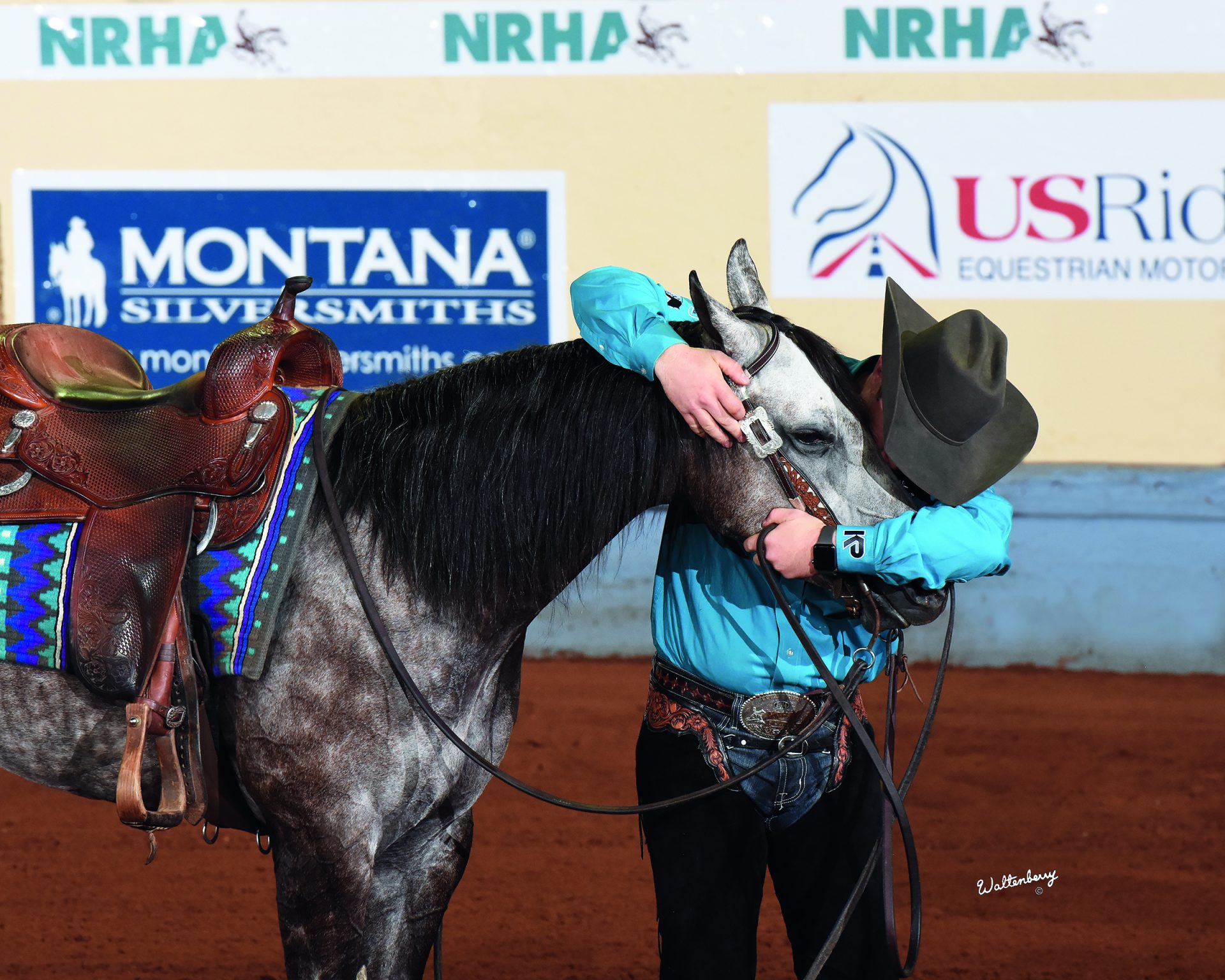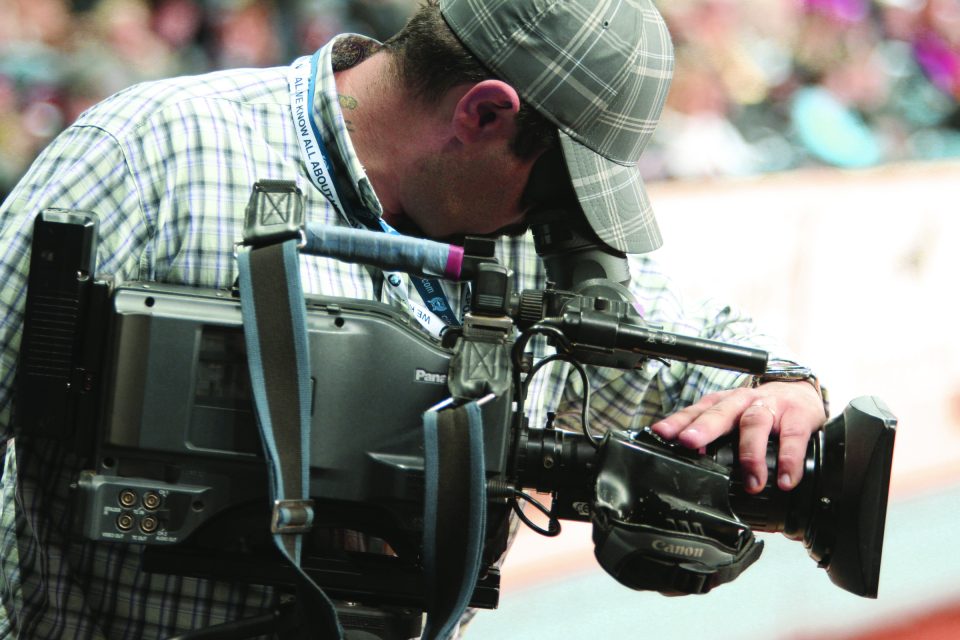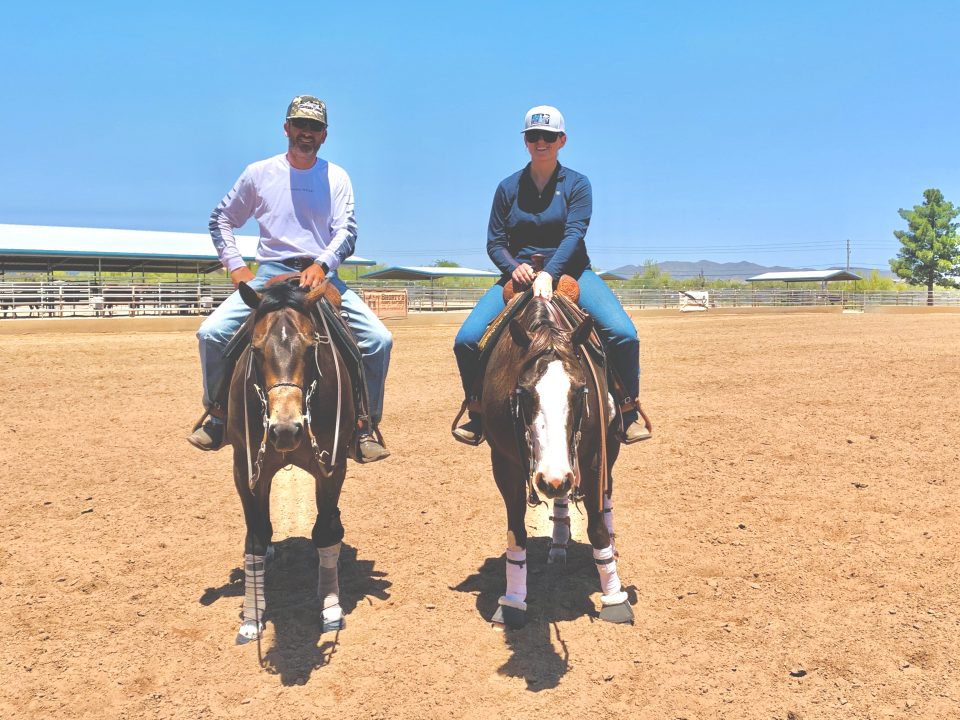Part of being an ethical professional is respecting your horses and your sport.
By Jennifer Paulson

When did your passion for riding horses start? You might not remember an exact moment or event—likely because horses were part of your DNA from birth. Your parents and grandparents raised you around horses and the horse community, and it was such a part of what defines you, that you couldn’t imagine doing anything else professionally. Or maybe your horse connection started from books and TV shows and movies, which led you to beg your parents for riding lessons or to own your own horse, leading to where you are today, as an NRHA Professional.
It doesn’t really matter where your first horse experience happened or how it came about, that connection led you down a path to work with horses day in and day out, through all kinds of storms—those of the literal weather kind, the financial kind, and even those caused by a pandemic.
How you chose reining as your focus could come from many different experiences. Maybe you grew up riding with a 4-H club and reining was an upper-level discipline that caught your attention. Perhaps you came by it naturally, with parents who spun and slid their way to paychecks. Whatever the case, this is your sport. You’re a student of the rules, an artisan of your training craft, and a sage coach for your customers.
Here, four NRHA Professionals discuss how they show respect for their profession, horses, customers, and the sport.
Part 1: A Way of Life, Billy Williams
Part 2: A Commitment to Horsemanship, Kole Price
Part 3: A Change in Focus, Jordan McBurney
Part 4: A Focus on the Horses, Peter DeFreitas
A Commitment to Horsemanship
“I didn’t show my first reiner until I was 19,” shared Kole Price, who grew up with his grandfather’s Percheron draft horses and didn’t ride until he was 10. “My grandpa had a great passion for horses and was a good horseman, and I always looked up to that and still do. I always felt like I had a pretty good understand of horses in general—being a horseman—and I hear stories that I was obsessed with horses from Day 1.”
With that upbringing in mind, Price today focuses on improving his training skills, but overall, he strives to improve his horsemanship and respect the horse as his partner.
“All the people who I look up to are what I’d consider great horsemen—not just great trainers,” he said. “They know horses inside and out and how to care for them.”
Alongside his commitment to his horses, Price is committed to his business, his customers, and this the sport.
“First and foremost, anytime I can do an article or share information, I do it,” he said. “I’m very open about trying to share whatever information I have. I make time to teach people, especially my assistants. It’s hard in the long run, because I know eventually every assistant will leave and I have to start over, but those assistants are our future. If I teach them all I can, hopefully someday they’ll be better horsemen than I am.
“With my customers, I explain that we have to care for these animals, how to care for them, why we do it—I want to make them knowledgeable,” he continued. “But I also make it fun and entertaining, because if it’s not, they’ll get out. I try to keep my customers involved by sending them photos and videos. It might seem easy to them, but in my day-to-day schedule, it’s easy to get sidetracked and forget they own a horse that they don’t get to see too often. Interacting with them keeps them hooked.”
Read the rest of this article at the links above.



